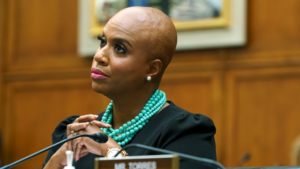Iowa City’s Ad Hoc Truth and Reconciliation Commission (TRC) will take a new approach to fulfilling its task of documenting systemic racism in the community, and collecting the stories of those who have experienced it. Previously, the commission had focused on hiring a facilitator to assist and help guide its work. In fact, hiring a facilitator was one of the few specific instructions the Iowa City Council provided when the commission began in December 2020.
But during the city council’s Sept. 21 formal meeting, it voted to reject the TRC’s proposal to hire Kearns & West, a California-based consulting firm, as its facilitator. Kearns & West had experience working with groups similar to the TRC, had the unanimous endorsement of the TRC and was the only applicant for facilitator who responded to the city’s advertisement of the position.
The four members of the city council who voted against hiring Kearns & West — Mayor Bruce Teague, Mayor Pro Tem Mazahir Salih, Pauline Taylor and John Thomas — did not oppose it because of the price. At a previous meeting, the city council voted unanimously to approve the $197,907 the consulting firm would have charged for its services. Instead, Teague, Salih and Taylor argued that an out-of-town firm would be unable to truly understand Iowa City or gain the confidence of enough community members to properly facilitate the documentation of systemic racism. Thomas said he didn’t feel comfortable proceeding until everyone — city council, TRC and community members — agreed on what would constitute a firm foundation for the commission’s work.
It wasn’t just councilmembers that expressed those views during the city council’s Sept 21 meeting.
During the public comment period, Pastor Anthony Smith of New Creations International Church said he believed there are community leaders and organizations in Iowa City who would do a better job than an outside firm like Kearns & West.
“Why would you go anywhere else to look for solutions when these are the people that have been putting their heart, their soul, in this community for years?” Smith said. “We live here. This is our community, and we can fix ourselves. And to be honest with you, it’s almost a slap in the face to say that we can’t figure out how to fix our own community.”
Royceann Porter, who was an original member of the TRC and served as its first chair before being voted out of that position by other commissioners in March, made the same point. Porter was one of the four commissioners who subsequently resigned that month, leading to the city council temporarily suspending the work of the commission. Porter, a Johnson County Supervisor, addressed the council in her role as founder and president of the Black Voices Project (BVP).
“The current membership of the TRC as well as the majority of the city council is out of sync with the wide cross-section of the Black community that does not support this,” Porter said, reading a letter from BVP to the city council. “This firm, Kearns & West, does not have any connection in our community or with members of the Black community in Iowa City. We have no reason to trust them to guide us to a public hearing of the truth of our experience in Iowa City.”
Porter pushed for someone already part of the community to fill the facilitator role. “There are qualified professionals here in Iowa City who can take on the restorative work needed to accomplish the goals of the TRC and who already have connections and a foundation of trust within the community.”
Both Porter and Smith recommended that the city council should suspend the TRC and reorganized.
“At no point since the TRC was reconstituted has the Black Voices Project actually been at a TRC meeting that I do know of,” TRC Chair Mohamed Traore told the city council when it was his opportunity to speak at the Sept. 21 meeting. “I just want to know why we can’t have a dialogue, and why we can’t work this out because I would like them to be a part of this process.”
He explained that a Kearns & West facilitator team would only assist in the process. The community and the TRC will always have the final word.
“It comes down to everyone, all cross sections of this community, actually coming together, working for truth-telling, fact-finding and reconciliation,” he said.
Two members of the proposed Kearns &a West facilitator team also addressed the city council, assuring councilmembers they had experience working remotely on such projects like a TRC, and that the commission members and the community would be in charge of the project.
Although the city council rejected the proposal of hiring Kearns & West, it did not take up the suggestion of suspending the TRC — although Mayor Teague said council should consider that option — or instructing city staff to post a new advertisement for a facilitator.
The city council’s actions left the TRC dealing with uncertainty, and not for the first time. Even before city council suspended the TRC for a month in March, some commissioners had said they felt the TRC had been set up to fail because of a lack of direction from the city council.
But at the TRC meeting on Thursday, commissioners were clear about moving forward with the mission.
Commissioner Sikowis Nobiss said that the commission needs to start making decisions. Their purpose is to let people testify, she said, and they “don’t need subcommittees to do that.”
“We need to be bold and do what we need to do,” she said. “Just go to the community and ask people to speak.”
Other commissioners, like Kevin Rivera, said that the TRC has been so focused on refining their framework, mission and budget, it left little time for their actual work. Commissioner Clif Johnson agreed, adding that going before city council with another facilitator proposal would be a “waste of time.”
Rivera noted the commission is still facing the June 2022 deadline the city council set last year for the TRC to conclude its work and issue a report. And since there is not a facilitator, he advocated that they partner with local organizations interested in issues of systemic racism, like the Fund Excluded Workers Coalition and Great Plains Action Society. (Commissioner Nobiss is the founder of the latter organization.)
Eduardo González, an expert on truth and reconciliation commissions at George Washington University’s Mary Hoch Center for Reconciliation and a member of the facilitation team Kearns & West proposed, has also offered to connect the TRC with ThinkPeace, a nonprofit he works with that supports racial justice and reconciliation initiatives. ThinkPeace would provide the commission with assistance at no cost.
At their next TRC meeting, commission members will compile a list of organizations they believe can assist in their work, and decide on which ones they will contact.
This approach will allow the TRC to avoid further interaction with the city council for the moment. Commissioner Eric Harris said at Thursday’s meeting he believes the commission should wait until after the city council’s upcoming election before going back to it.
“I’m going to have to wait to see some new faces,” he said.
The TRC decided to move forward with the fact-finding and testimony-gathering aspects of its mission before returning to the city council with some results to present.




